 Research at the UKE?
Research at the UKE?
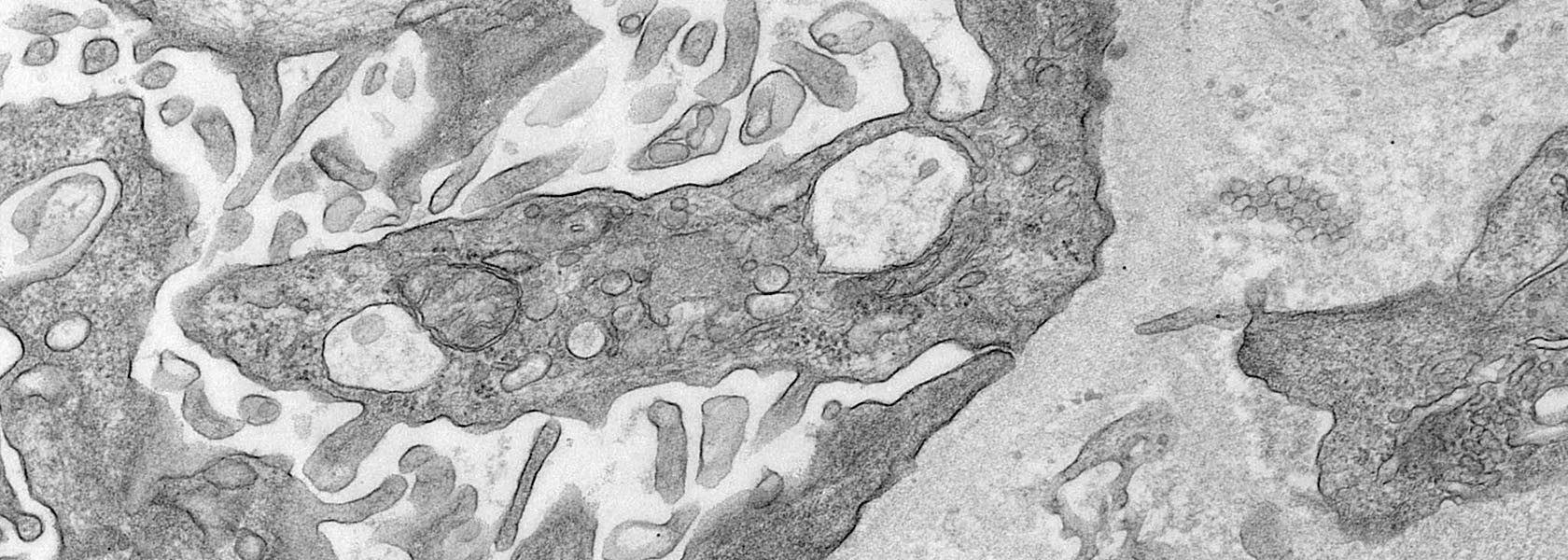
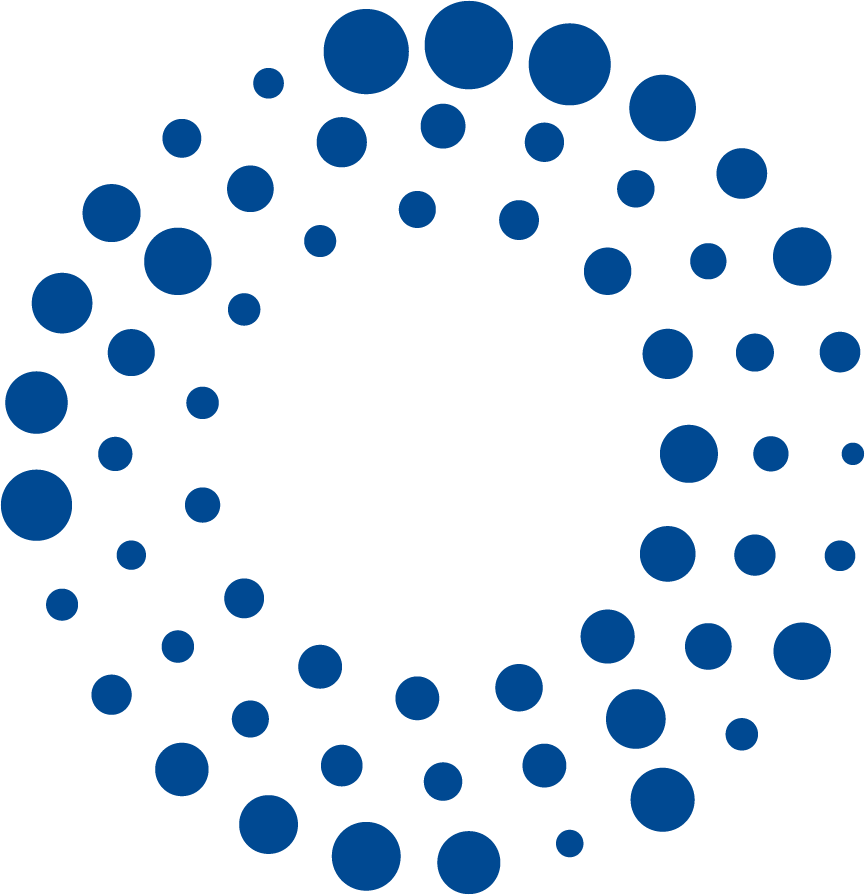
Huber and Tomas Lab
We aim at a better understanding of podocytopathies, the complex principles of kidney diseases,
immune-tissue interactions, and interorgan signaling.
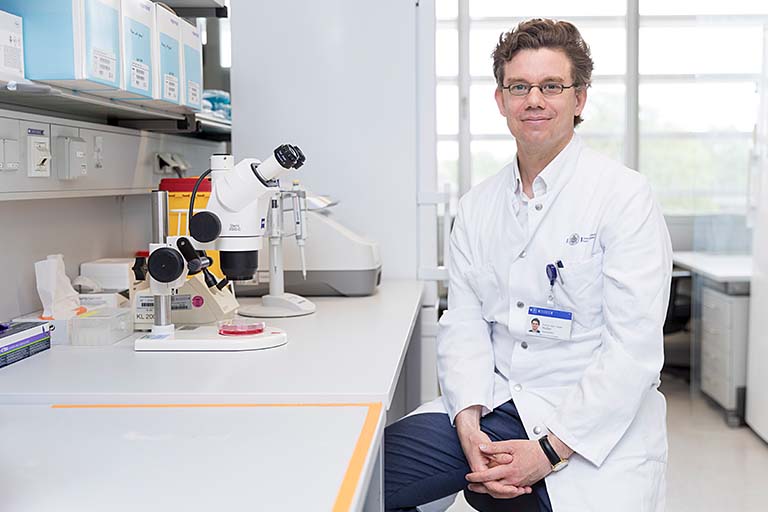
“Enabling and performing excellence in clinical and molecular nephrology.”
Prof. Dr. Tobias B. Huber
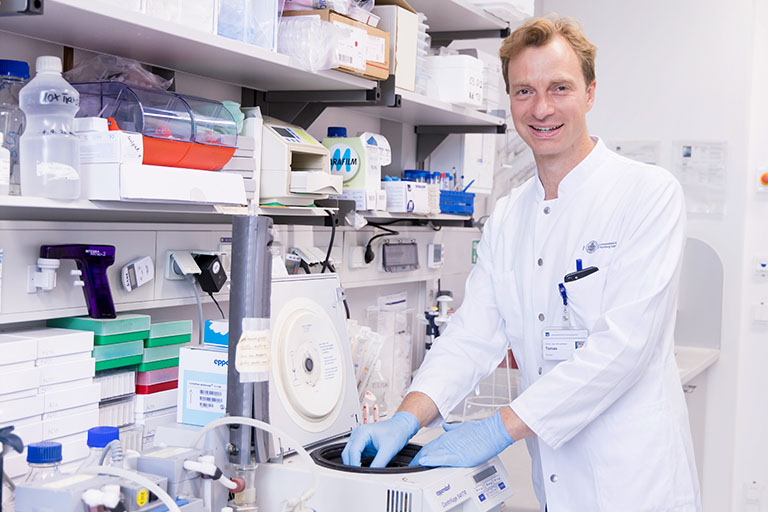
“Understanding antibody-mediated kidney disease to pave the way for antigen-specific future treatments.”
Dr. Nicola Tomas
Project details and goals
Targeting immune-mediated kidney diseases
Autoimmune kidney diseases are a common cause of kidney failure and are responsible for its most aggressive and progressive forms, mainly in younger individuals. Autoantibodies play key pathogenic roles in most of these disorders and multiple disease-specific target antigens have been identified - circumstances that have shifted treatment strategies from largely unspecific immunosuppression towards B and plasma cell-targeted treatments.
However, such treatments still involve broad immunosuppression with potentially severe adverse effects. Our vision is the development and experimental implementation of pathogenesis-based, highly specific therapies for immune-mediated kidney diseases. This involves targeting kidney cells using adeno-associated viral vectors as well as antibody- and nanobody-based strategies to eliminate autoreactive B and plasma cells.
Current projects – Huber and Tomas Lab
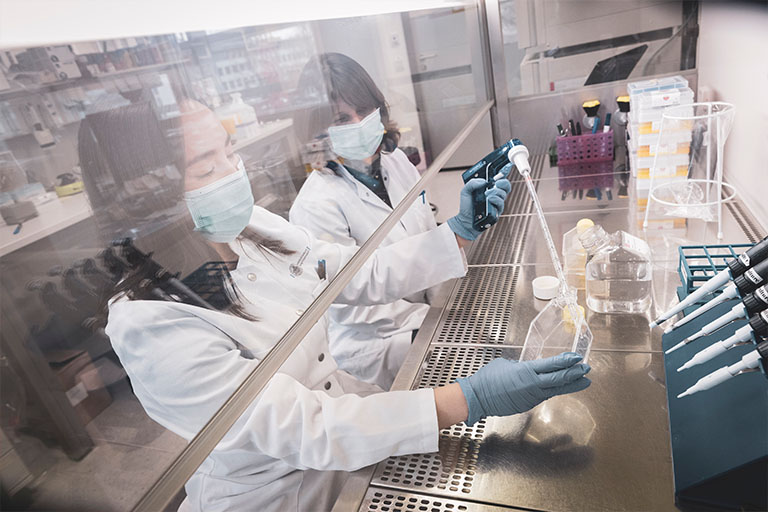
Podocytopathies
We aim to identify both antibody and non-antibody causative agents in podocytopathies with a minimal change and primary focal-segmental glomerulosclerosis phenotype. In addition, we analyze the tissue response to these factors to identify pathogenic disease mechanisms.
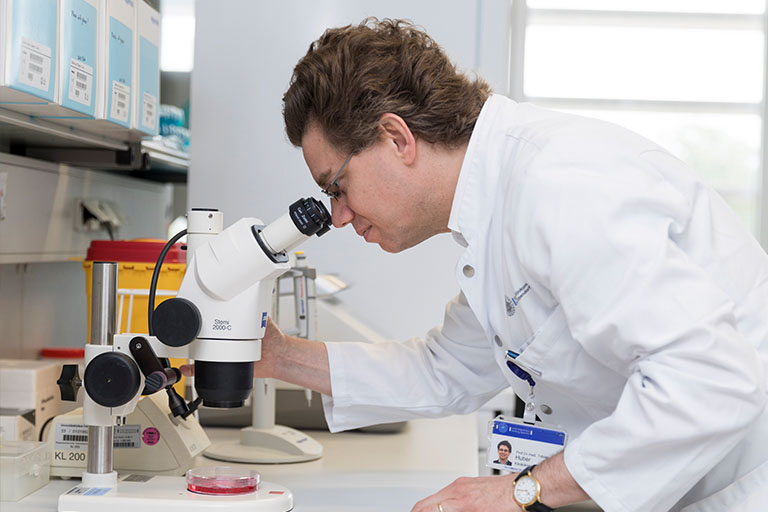
Anti-nephrin autoantibodies
Our teams are currently characterizing the clinical and pathobiological roles of anti-nephrin autoantibodies in podocytopathies. This involves epidemiological studies in large cohorts of patients with different podocytopathies, the biochemical characterization of the autoantibodies and their binding sites within the nephrin molecule, and the establishment of cell-, organoid- and animal-based disease modeling systems.
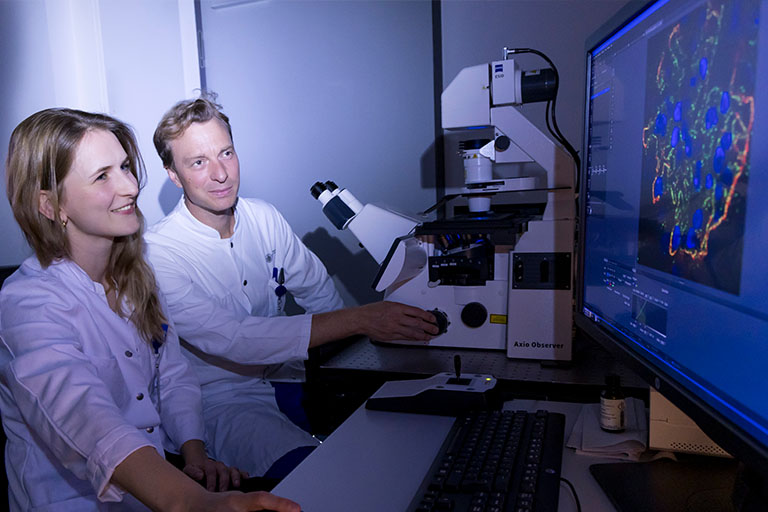
Gene-Therapy
We are developing novel gene therapy vectors using AAVs to efficiently target kidney glomerular cells, offering a promising new approach to treat antibody-mediated kidney diseases.
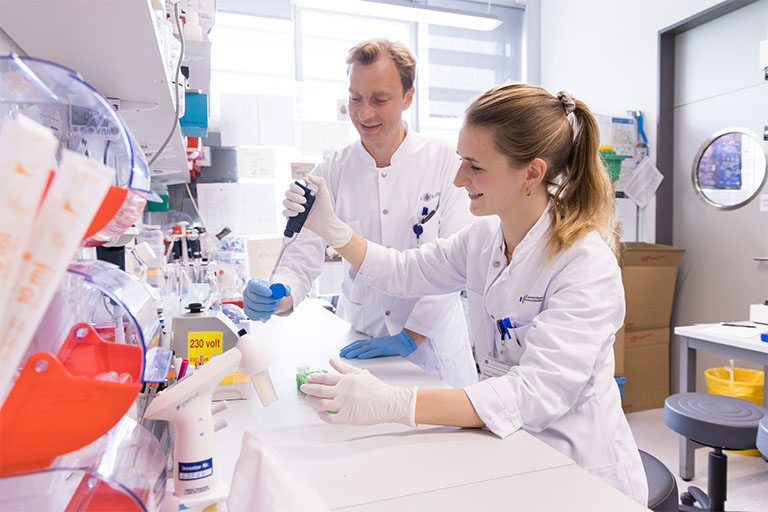
Membranous nephropathy (MN)
This project focuses on the conceptualization and preclinical testing of new therapeutic strategies aiming at the removal of pathogenic autoantibodies and autoreactive B-cells.
Team – Huber and Tomas Lab


Prof. Dr. med. Tobias Huber
Head
E-mail address:



PD Dr. med. Nicola Tomas
Head
E-mail address:
